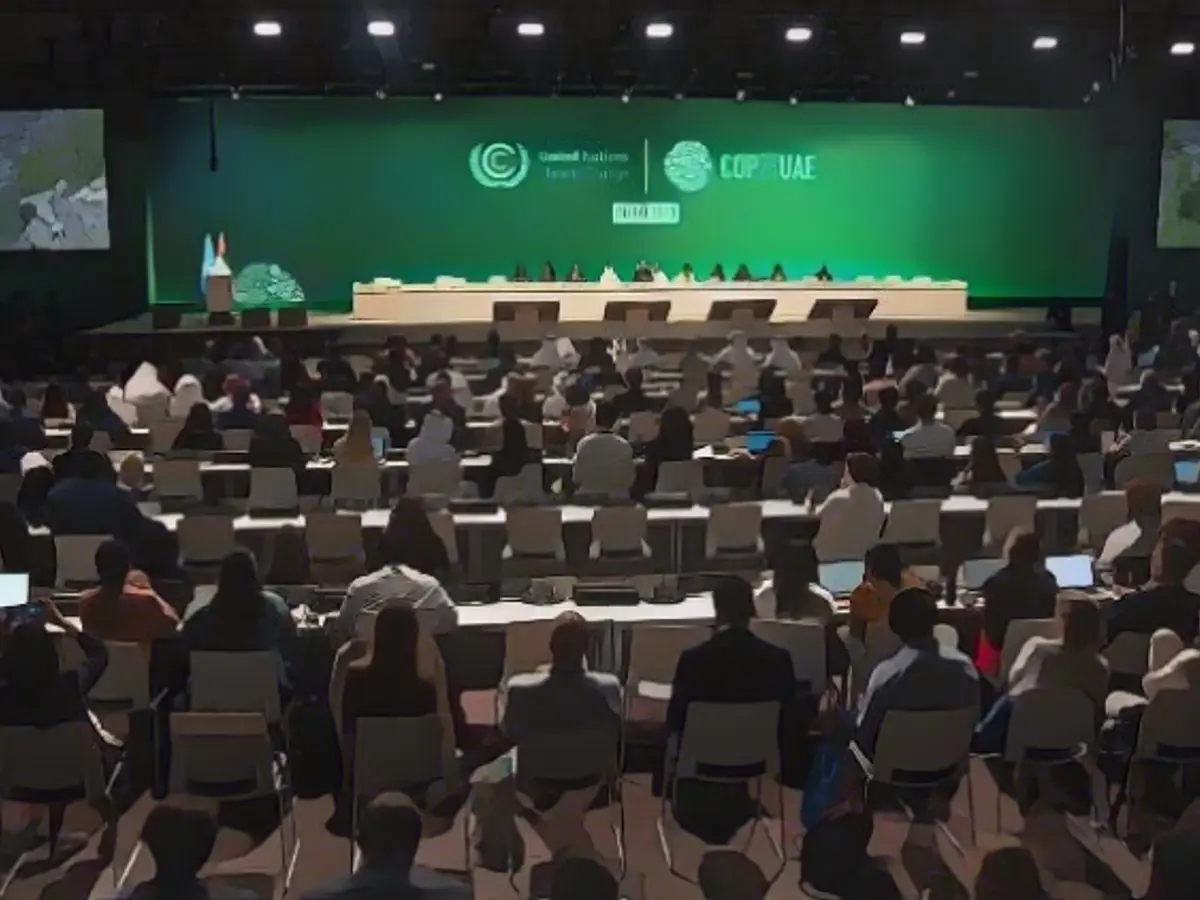Fires Ignite at Dubai's Climate Talks Over Fossil Fuel Phase-Out
A fiery debate is underway at the UN Climate Change Conference in Dubai, with countries locked in a standoff over phasing out fossil fuels. The EU and the USA are pushing for a swift transition, while Saudi Arabia and India are digging their heels in, resisting any such commitment. Amidst the tension, UN climate chief Simon Stiell issued a stern warning against settling for the lowest common denominator.
In a no-holds-barred address, Stiell expressed his disappointment with the current draft of the final document, dubbed the global stocktake, calling it a "grab bag of wish lists." He urged the negotiating parties to step up their game and formally decide to gradually phase out coal, oil, and gas. As of now, around 100 countries support this move, but the road ahead is anything but smooth.
Resistance is fierce, with Saudi Arabia and India forming a key opposition block. The former, an oil-rich nation, and the latter, heavily reliant on coal, are unwilling to listen to calls for a fossil fuel departure. It's a tense game of strategies and politics as the world waits for COP28 to either herald a new era of climate protection or produce a stalemate.
Germany, a key EU member, remains cautiously optimistic. EU Commissioner Wopke Hoekstra acknowledged the challenges at hand but reiterated the EU's stance on the phase-out of fossil fuels. The US, too, has joined the fray, with US climate envoy John Kerry committing to reducing climate-damaging greenhouse gases to almost zero by 2050. However, the former secretary of state conceded that fossil fuels would still be necessary for certain sectors, such as cement and steel production, albeit with carbon capture and storage.
These developments come at a time when the report on the global carbon budget revealed a worrying trend. CO2 emissions are projected to reach a record high of 36.8 billion tons in 2023, marking an increase of 1.1% over 2022 and 1.4% over 2019.
Related Reads:
As COP28 enters its final stretch, the stakes have never been higher. With diverging interests and a race against time, the world watches as Dubai lights up the stage for a high-stakes showdown over fossil fuels.
Behind the Scenes:
To successfully phase out coal, oil, and gas at the COP28 Climate Change Conference, nations must tackle both the technical and political challenges. Strategies to overcome resistance include:
- Global Leadership: The UAE, as the host nation, can lead by example by cutting fossil fuel production and consumption.
- Scientific Data: Highlight the urgency of reducing emissions to keep the 1.5°C temperature goal in check.
- Differentiated Responsibilities: Recognize the various capabilities of nations and promote a fair transition timeline.
- Financial Support: Provide funds to developing countries for renewable energy and adaptation measures.
- Carbon Markets: Encourage carbon trading mechanisms to generate revenue for clean energy projects.
- Non-Market Approaches: Utilize non-market methods like capacity building and technology transfer.
- International Cooperation: Foster global unity and offer support to countries for transition plans.
- Inclusive Transition: Ensure a just and equitable process for workers and communities dependent on fossil fuels.
- Accountability: Utilize the Global Stocktake mechanism to monitor progress and hold nations accountable.
- Technology Transfer: Facilitate technology sharing to help nations develop a low-carbon economy.
By combining these strategies, nations can forge a robust framework for the phase-out of fossil fuels, addressing the concerns of all parties and paving the way for a sustainable low-carbon future.








